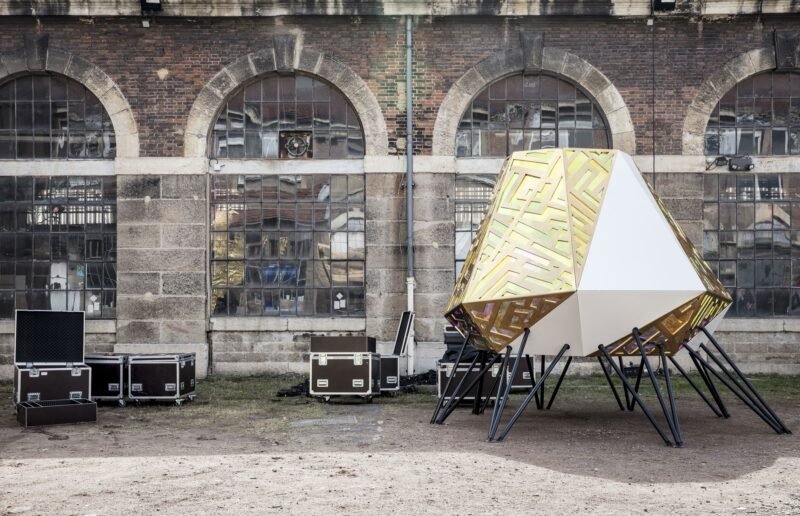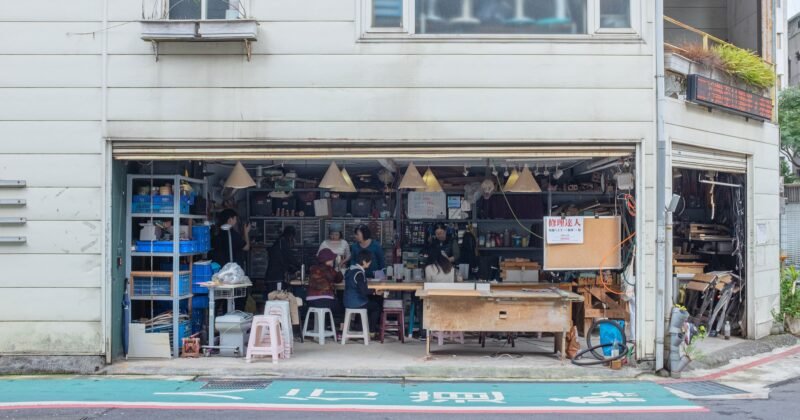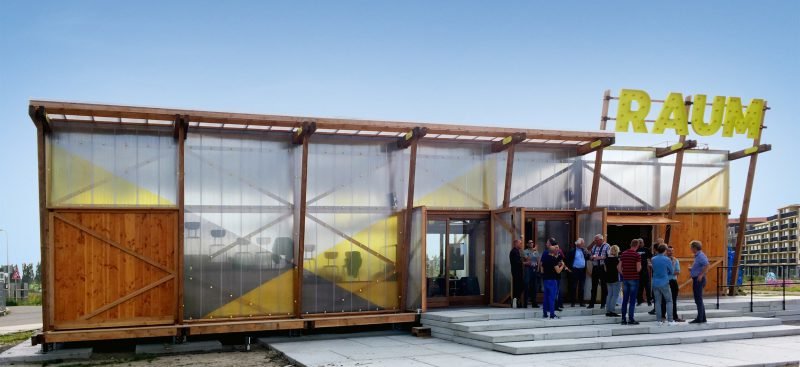Motown Movement Wants To Rebuild Detroit In A Sustainable Way
Three architecture students from Delft University of Technology have bought a house in Detroit with the aim to rebuild it in a sustainable way, and to start an urban regeneration movement at the same time.
Detroit has become the prototype of urban decay. The decline of the industrial city over the last few decades resulted in the largest municipal bankruptcy filing in American history. Due to industrial restructuring and loss of jobs in mainly the auto industry, Detroit lost considerable population. In 2010, the city had a population of 713,777 — more than a 60% drop from a peak population of over 1.8 million in 1950. As a result, crime rates are among the highest in the United States, and vast areas of the city are in a state of severe urban decay. An enormous amount of houses, and even complete neighborhoods, are abandoned. Amid this decline, the remaining population has embraced the change as something positive, and with a strong do-it-yourself mentality made use of the available space, materials and freedom.
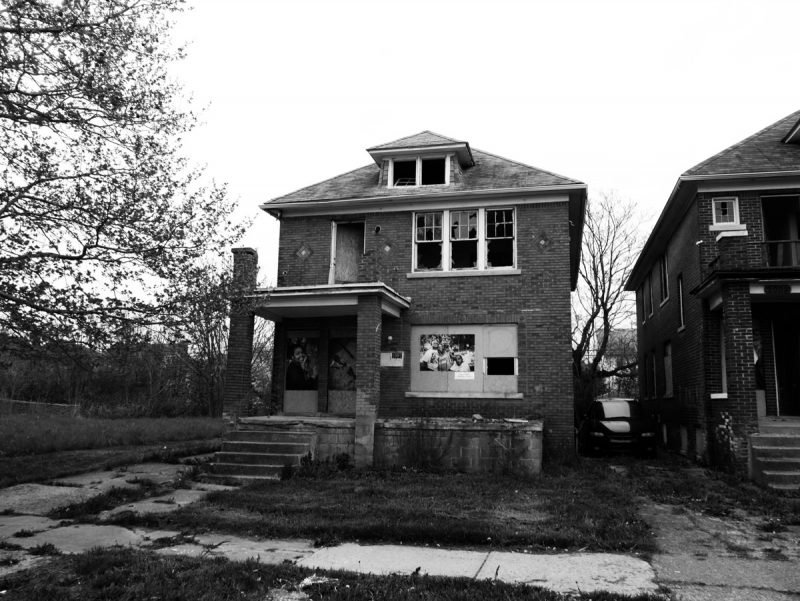

The three students involved in a new project named the Motown Movement, visited the city and became inspired by its resilience. Only in the last few years several great urban initiatives led by entrepreneurial citizens emerged, such as urban farms, art installations, communal sport fields, recycling projects, and more. This powerful adaptiveness of the people of Detroit proved the city to be future proof, according to the three guys. They decided they wanted to tap into this emerging ‘urban laboratory’ and create a meaningful contribution.
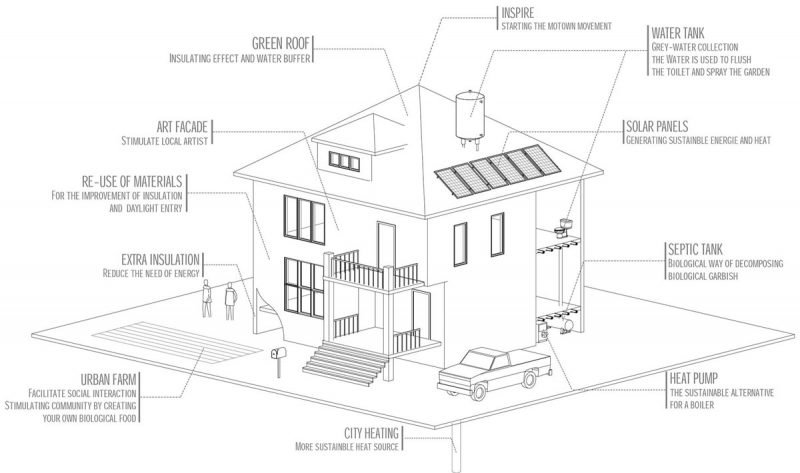
Now, they have put their studies on hold and bought a house in one of Detroit’s deprived neighborhoods. The house should become a pilot project that connects reconstruction with sustainability; rebuilding the city in a climate-proof way. Inspired by the city’s do-it-yourself spirit, they saw potential in implementing modern but down-to-earth technologies in the reconstruction. An open source renovation method will be implemented and demonstrated in the house, so the entire community can participate in the low-tech and low-budget methods for retrofitting an existing house. Also, the second floor of the house will be given to a family who recently lost their home. The house showcasing these sustainable solutions can inspire homeowners, to fight climate change, reinforce communities and save on energy consumption.
The students are currently crowdfunding their campaign and aim to start work in Detroit in September.
